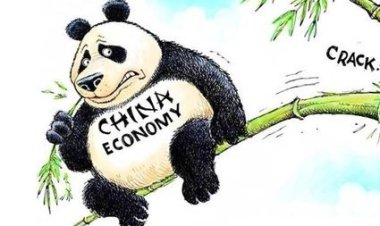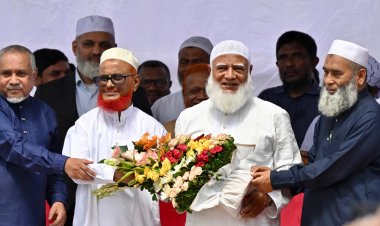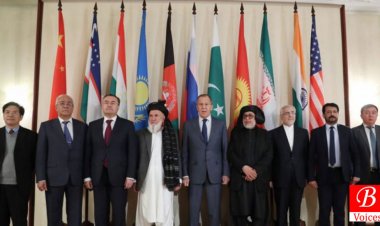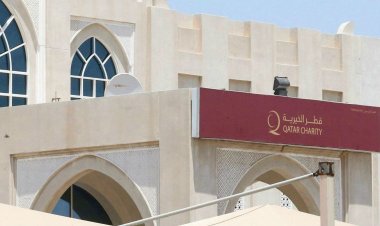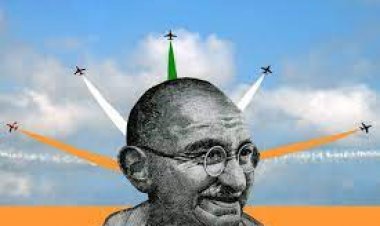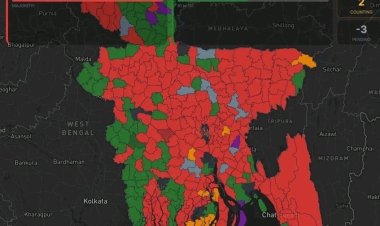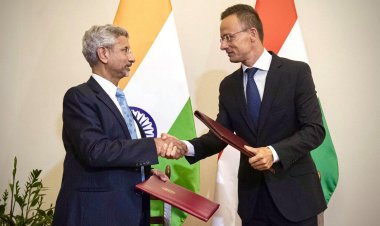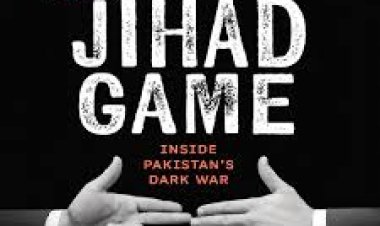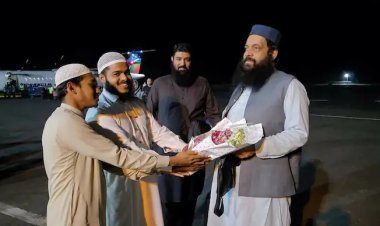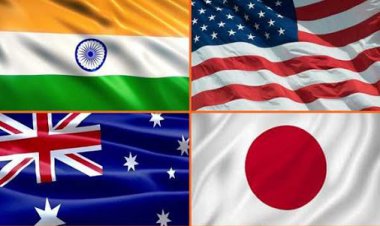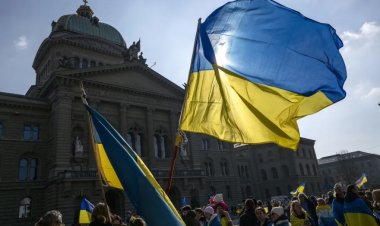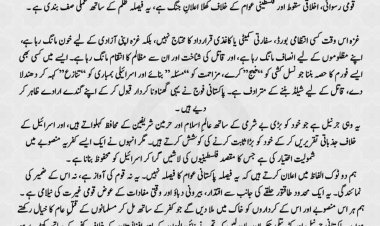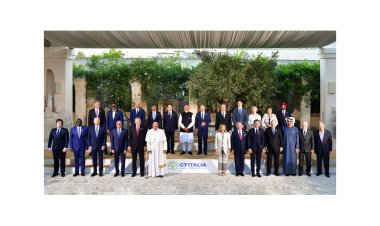Pakistan is Massacring Innocents in Gilgit-Baltistan, Khyber-Pakhtunkhwa and Baluchistan; and India Must Intervene: Experts
On 25th February 2021, Usanans Foundation organized a webinar on ‘A Dialogue with Pakistan's Oppressed Ethnic Communities”. The webinar aimed to provide a platform for experts with first-hand experience of the brutality of the Pakistani government towards the people of Pakistan Occupied Kashmir (POK), Sindh and Gilgit-Baltistan.
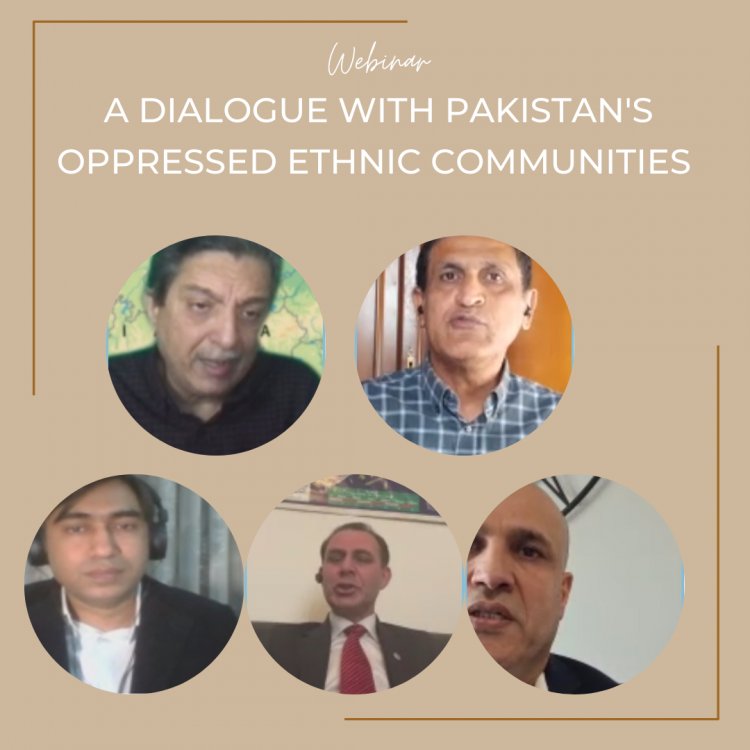
Webinar Report
By Usanas Foundation
On 25th February 2021, Usanas Foundation organized a webinar on ‘A Dialogue with Pakistan's Oppressed Ethnic Communities”. The webinar aimed to provide a platform for experts with first-hand experience of the brutality of the Pakistani government towards the people of Pakistan Occupied Kashmir (POK), Sindh and Gilgit-Baltistan. It included Mr Arij Ajakia, Ex-Mayor of Jamshed Town in Karachi and a Human rights and social media activist, Mr Bilal Balouch, a Baloch journalist and columnist, Mr Jamil Maqsood, central secretary at the committee on foreign affairs, leader of United Kashmir People’s National Party (UKPNP), lobbyist at the European Parliament and united nation human rights council, and lastly, Mr Fazal Ur Rehman Afridi, a journalist, writer and human rights activist. The session was moderated by Mr Abhinav Pandya, CEO and Founder of Usanas Foundation.
Mr Abhinav Pandya began the session by giving a glimpse into the efforts by Usanas Foundation to highlighting the issue in the world forum through petitions to various international organisations such as the UN and countries like the United States.
Mr Arif Ajakia started his address to the session with, “In Pakistan, human rights do not exist and in Pakistan, we don’t know what human rights are.” He highlighted the role that the western powers played, in the creation of Pakistan and the Pakistani identity, which in turn lead to an identity crisis within Pakistan and the denial of its Indian heritage. He also asserted the failure of the “two-nation theory”, which proved to be unsuccessful in keeping East and West Pakistan united.
Occupied territories like Balochistan and Gilgit Baltistan, Pakistan occupied Kashmir (POK) and Sindh, were liberal states with Sufi influence. Sindh was the only seaport of Pakistan before the creation of Gwadar Port, a 70% contributor to the national exchequer. However, the influence of Zulfikar Ali Bhutto and their alliance with the Pakistani army resulted in the exploitation of Sindh.
Lastly, he also touched upon the “Muhajir Movement” in Pakistan, also known as the “Muetteheda Quami Movement” for the rights of the Mujahirs. Their local leaders were gradually taken into control by the intelligence agency of Pakistan, ISI (Inter-State Intelligence) by using force and intimidation. One among them is Altaf Hussain, who is currently living in exile in London. Peace was also disrupted in Karachi due to the activities of the so-called MQM leaders, Mehran Rangers, and the Pakistan Army. Through this Sindh’s resources, especially its markets, were exploited.
Mr Jameel Maqsood began his address by highlighting the history of atrocities in the so-called ‘Azad Kashmir and Gilgit Baltistan. He looked back at the events that resulted in the occupation of the region. The ruler of Jammu and Kashmir, Maharaja Hari Singh decided to request both India and Pakistan to enter into a standstill agreement, while India wanted to deliberate on the terms of the agreement, Pakistan had already signed it. But on 22nd October, they planned to invade Jammu and Kashmir with the help of tribesman and a sizeable number of army men masquerading as Kabaili tribesmen. The local population of the state resisted the invaders.
He then chose to emphasise upon Pakistan’s continued occupation of large parts of the region from when it had invaded J&K. There have been enormous human rights violations since 1947 in the regions of POK and Gilgit-Baltistan. Mr Maqsood also stated that the living condition in POK and Gilgit-Baltistan is excruciating for any intellectuals and citizens with conscience. Unlike Indian administered Kashmir, POK and Gilgit-Baltistan are behind an iron curtain from where no information about the region reaches to the outside world.
The next panellist was Mr Balouch Bilal, a Balouch journalist and columnist. Mr Bilal believes that from the day the Pakistani Army occupied independent Balouchistan, they have been conducting forced disappearances as well as abusing the human rights of those residing in the region. He added that the multiple cases of abuse by the Pakistan Army have been documented officially by different international organisations, and even the human rights commissioner in Pakistan has admitted to atrocities in the region.
Mr Bilal added that India, as a democratic country, must come forward to help not only Balochistan but also other oppressed voices in Pakistan. In Baluchistan there is no free and independent media and the only journalists there are those that work for the Pakistani Army. This means that the countless atrocities committed by the Pakistani government and the Army go unnoticed.
The last panellist was Mr Fazal-Ur Rehman Afridi. He stated that there is a huge misconception about Pashtuns who reside in Pakistan. The Pashtun minority has suffered a lot at the hands of the Pakistani regime in the last 20 years. He highlighted the Babrra massacre during which authorities open fired and killed dozens of peaceful Pashtun protesters. Mr. Afridi also stated that in the last 20 years, the Pakistani Army has used gunship helicopters, artillery and F-16 bombers against innocent Pashtuns, while using the guise of fighting terror. 75,000 innocent Pashtuns have been killed in the last 20 years. This is confirmed by the Pakistani Army, media and government. The Pashtuns have now taken their case to the international community and the United Nations, fighting back against both physical genocide and cultural genocide.
The presentation by the panellists was followed by comments by our special guest, Ambassador Anil Trigyunayat. He began by saying, ‘It’s heart-wrenching to hear the plight of our friends from certain parts in Pakistan’ and expressed his views on the tactics used by the Pakistani deep state as being unsustainable in the future. He states that it is difficult to fight the might of the state and the state, in its persuasion of interests, often becomes rogue. However, the world must look at the issue, not from the narrow prism of geopolitics and interests but as issues of development due to which people are revolting. Whether these regions are given autonomy or are crushed will depend on the way, the Pakistani state reacts.
The second special guest was Taniel K from Washington DC, who talked about the Pakistani lobby in the United States, and the deteriorating US-Pakistan relationship. He said that the US-based third-party Islamist civil society groups have been doing Pakistan’s PR work and have relations with the Pakistani government. Much of their donors and office bearers are non-transparent. There is an emerging interest among Muslims in the United States on the Kashmir issue, but a lot of it is not from Pakistan or Kashmiris themselves but Turks and Azeris because it helps the community to organise themselves.
The following questions were raised during the webinar.
- Is there a way to prevent the Pakistani army from exercising direct or indirect control over democratic governments?
Answer: Mr Arif Ajakia thinks that to stop the Pakistan army’s brutalities, attention needs to be driven to the cause. The genocide of the Bengalis in East Pakistan in 1971 stopped only after the Indian army intervened. The support of an external superpower is needed to stop the Pakistan army, and justice must be meted out by the international court of justice where the Pakistani army generals can be tried for war crimes. Mr Afridi said that structural changes are required in Pakistan, a true democracy with a federal structure and equality of all ethnic communities is extremely necessary. Mr Bilal Baloch added that it’s important for Pakistani political parties to recognise that they can gain power without the support of the Pakistani deep state but the initiative has to be taken by ground level political parties like the people’s party and PMLN.
- What is the stand of JKLF on the poor state of development in Pakistan?
Answer: Mr Maqsood: JKLF is a proxy of the Pakistani deep state like JEM, LET. JKLF isn’t a political party or movement.
- Was Karima Baloch murdered?
Answer: Mr Arif Ajakia: I believe that Karima Baloch was murdered by ISI. It has prepared a hit list of human rights activist under the facade of the EU disinformation lab. The human rights activists are considered enemies of the deep state, we receive warnings daily and Karima had exposed that retired Pakistani armed forces officials have settled in Canada.
In the end, Usanas Foundation's Founder-CEO, Abhinav Pandya said there is growing awareness and support among Indians for the cause of Pakistan's oppressed ethnic minorities. He raised some questions at the end to ponder over. Firstly, why there is no uproar when Pakistan imposes unending security and communication lockdown in its troubled areas? When India imposed the same after Article 370, for a limited time, as a precautionary measure because vested interests can easily mobilize people and start civil unrest leading to loss of precious lives and property, Pakistan was able to make a global issue out of it. Is there a problem in India’s strategic thinking, diplomacy and communications strategy? Secondly, as the West is in an appeasement mode, should India ask counter questions to the West when it preaches India about human rights or do they have any moral or legal basis to question India in the first place? Thirdly, since Pakistan believes in "ghazwa e hind" and wants to destroy India, should India continue with democratic methods and soft policies or think out-of-the-box approach, much needed for strenrthening India’s own security?
Disclaimer: The opinions expressed in the webinar belong to the panellists and not necessarily to the

